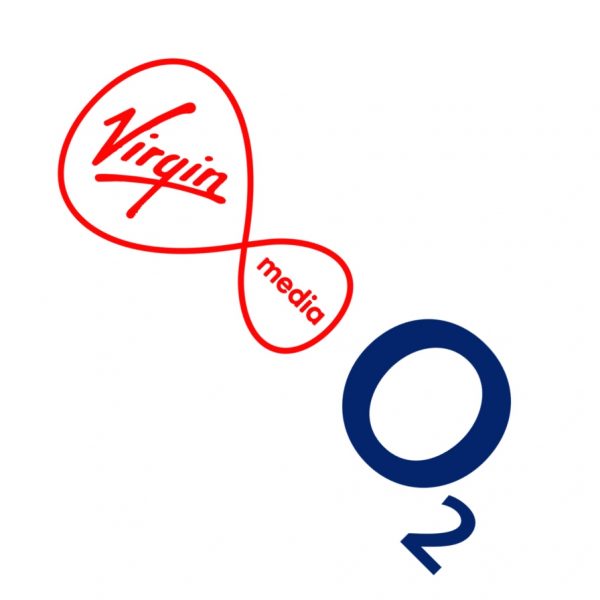Sky and Vodafone Air Competition Fears of Virgin Media and O2 Merger UPDATE

Sky UK (Sky Mobile, Sky Broadband) and Vodafone have today published their responses to the Competition and Markets Authority‘s (CMA) on-going phase 2 investigation into the proposed £31bn merger between mobile operator O2 and broadband ISP (inc. TV, phone) Virgin Media, which raises a number of competition concerns.
In theory, there shouldn’t be too many obstacles to the deal since both operators’ largely focus on different parts of the wider UK telecoms market. But in practice the CMA did recently raise some predictable concerns (here) about the merger’s potential impact on the markets for retail and wholesale mobile services, as well as the market for business leased lines (specifically those used to supply mobile operators / masts).
For example, there’s a concern that Mobile Virtual Network Operators (MVNO) on O2’s network, such as Tesco, Sky Mobile and others, could potentially face service restrictions or higher prices for access, which might in turn lead to price hikes for consumers or force the MVNO providers to change operator (i.e. a reduction in competition by the backdoor).
Advertisement
However, such gripes are fairly predictable and similar fears were raised against the previous merger between BT and EE, which still managed to pass through the CMA with only relatively minor adjustments. Nevertheless, it was inevitable that some of those impacted by the deal, either directly or indirectly, would have a few words to say about it.
Sky’s Response
In Sky’s case their main concern (here) is the understandable risk of “input foreclosure” (i.e. this arises if the merged firm were to stop supplying rivals). “O2’s incentives to provide wholesale mobile services on favourable terms will materially reduce as the Merged Entity pursues increased uptake of fixed/mobile bundles benefiting from its converged and vertically integrated operations … the Merged Entity will [also] have the ability to degrade Sky’s mobile service,” said Sky.
Sky goes on to state that this fear is not merely theoretical because they claim to have already expended a “significant amount of time and resources” in order to protect Sky Mobile’s position against such a risk (a lot of the details here have been redacted).
However, O2 and Virgin Media countered, in their own joint response (here), that the merged company “will have neither the ability nor the incentive to foreclose other MNOs and such a strategy would in any event have no material effect on competition in the retail mobile market.”
Advertisement
Voda’s Response
The situation is a bit more complicated for Vodafone because, on the one hand, they have a natural vested interest in disrupting the merger (the last thing they want is another fully converged fixed and mobile rival like BT/EE to fend off against).
On top of that they also rely upon Virgin Media for a fair bit of their backhaul capacity and have a network (mast) sharing agreement with O2. Suffice to say that their response extends to 17 long pages (here).
Vodafone Statement
If this transaction proceeds, as mentioned above the UK market will be dominated by two operators that serve more than double the number of fixed and mobile customers compared to their nearest competitor.
Procuring wholesale network products gives operators that do not have network or only have network in one part of the market (fixed or mobile) the ability to provide converged retail services. If converged network operators are allowed to follow an input foreclosure strategy and frustrate supply of these wholesale products to other operators in an increasingly converged market, the competitiveness of the overall market will suffer.
Returns in UK telecoms markets are low, debt ratios are high and mobile network costs are set to increase substantially. This is driven by the need to replace Huawei technology, additional network security requirements being imposed and the roll-out of 5G technology, together with the need for additional 5G infill sites. However, the benefits for society of upgraded mobile technology are wide and meaningful. Fixed networks in the UK also require fibre investment and upgrading to ensure the ever-increasing technology needs of the UK are met.
In considering [CONFIDENTIAL] the two clearly identified theories of harm, the CMA should consider this overarching longer-term potential harm for UK telecoms markets and focus on ensuring any remedies enable other competing operators in the market to credibly compete with the two very large-scale vertically-integrated operators by securing competitive wholesale access in both fixed and mobile markets. This will help ensure a more competitive enduring landscape, to the ultimate benefit of consumers.
At this point it’s easy to forget that Vodafone has previously also discussed merging with Virgin Media, in fact they’ve done so on several occasions, but of course that never amounted to anything and in the end Liberty Global (Virgin’s parent) clearly found it easier to do a deal with O2 (Telefonica). Perhaps in another universe we might thus be attributing these complaints to O2 rather than Vodafone, but that’s not how things panned out.
Once again, this is all very similar to the gripes that were levelled against BT and EE’s proposed merger some years ago and we suspect that it won’t be enough to prevent Virgin Media and O2’s deal either. None of this is to say that the CMA won’t require some sort of commitment from the merged company before they sign the deal off, but rather that any requirements will be resolvable.
Advertisement
Meanwhile O2 and Virgin Media remain of the view that their deal is “pro-competitive” and will achieve closure by around mid-2021.
UPDATE 26th Feb 2021
The CEO of O2, Mark Evans, has since confirmed that they have “reached an agreement” with Sky that “addresses their concerns in full, and the CMA is fully aware of that situation.” So that’s one objection out of the way.
Mark is a professional technology writer, IT consultant and computer engineer from Dorset (England), he also founded ISPreview in 1999 and enjoys analysing the latest telecoms and broadband developments. Find me on X (Twitter), Mastodon, Facebook, BlueSky, Threads.net and Linkedin.
« Virgin Media Bring FTTP Broadband to 2,600 Homes in Allington






















































“”However, such gripes are fairly predictable and similar fears were raised against the previous merger between BT and EE, which still managed to pass through the CMA””
Hmm, yes and now it would seem that EE is no longer a network for budget providers to use with re-negotiation deal between BT and Virgin Media failed to meet expectations after such a long period of Virgin Mobile sitting in the T-Mobile/EE network and also the end of the deal with Asda Mobile also.
While I’m aware other MVNO’s do still exist on EE’s network I’m starting to expect more will be dropping soon as many I’ve looked at are not competitive.
I admit I could be jumping the fence a bit but essentially taking ‘another’ major off the market will surely be the start of something non competitive….
… at least where smaller niches are involved.
So we end up with BT, Virgin and then what, Sky and Vodafone/Three merger (maybe)
I lived in Canada for a few years and over there there is a huge LACK of competitions because of this type of thing,
There is 3 major providers over there, and all 3 run mobile networks and also fixed connection infrastructure, these are sort of broken up by Province…
There is Rogers, Telus and Bell, Rogers runs it whole mobile network nationally, Bell and Telus run separate networks but allow roaming across each others masts as Bell typically covers the eastern provinces and Telus covers the western ones, and that’s where fixed connections come in, Bell runs most of east coast fixed lines and Telus the west coast, Rogers runs cable in the East Coast and then there’s Shaw cable that covers the rest.
Now there was another smaller network that started to build itself up in urban cities and was much cheaper, but then Shaw Cable brought it out and now prices have started to rise.
So prices in Canada….
A sim only with 15GB 4G data through all three major operators is c$80+TAXES (£48) per month.
A base internet service cost to cost ranges c$100-C$120+TAXES (£70) per month.
I won’t bother going into Cable and Satellite TV and fixed phone service because they are even more appalling.
A last note on Canada’s monopolized Telecom’s market, every single MVNO that was opened on the major networks is now owned by the the major parent network, this includes and not limited too, Koodo, Fido, Chatr, Public Mobile, Virgin Mobile CA, Lucky, PC Mobile, Primus, Cityfone.
Thanks for reading.
Well that is the thing really, lack of competition does trend towards a mindset where the board of directors want 3-5% price increases every year, while the union militantly refuses all process savings.
On the other hand, Canada strikes me as a rather rural and difficult landscape to provide infrastructure in (less dense, severe cold weather etc.).
It is crazy to think I was paying the equivalent of £100pm for a 30kbs (ish) connection in 1995, where I am now paying £23pm for a 80meg connection?!
“”On the other hand, Canada strikes me as a rather rural and difficult landscape to provide infrastructure in (less dense, severe cold weather etc.).””
I knew someone was going to say that, that’s why prices also vary depending on locations so the prices quoted are best prices based on Urban cities, services out in the wild are either unavailable by fixed service or are considerably slower and higher in price.
Safe to say starlink is doing well for getting orders in up there.
Sky’s response at https://assets.publishing.service.gov.uk/media/603538998fa8f5481187e113/Sky_response_to_issues_statement_24.2.21.pdf reads more like a TOP SECRET mission brief which has been downgraded with half the information censored.
So much for open and transparent governance.
I wouldn’t worry about Virgin USA. I unfortunately have Virgin in London, England and they are dreadful. Broadband not working right now,television picture frequently freezes, landline doesn’t work. Laptop constantly buffering. No helpline or email for customer complaints. And just raised prices. I would recommend you stay away from them.
Totally of topic but good to see some positive feedback for Virgin 😛
@NO even if it is their only happy customer 😛